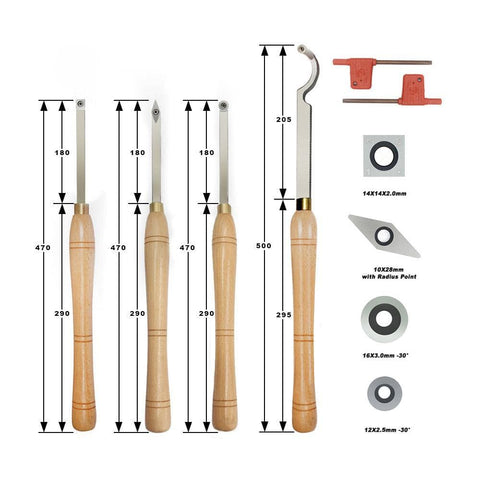In the realm of woodworking, the integration of technology has transformed traditional methods into a sophisticated, efficient, and highly accurate process. One of the most significant advancements is the use of CNC wood lathes. These machines combine the artistry of woodworking with the precision of computer-controlled automation, offering woodworkers the ability to create intricate designs and maintain high levels of consistency and efficiency. The CNC wood lathe, a digital evolution of the traditional lathe, has become an essential tool for both hobbyists and professionals alike.
A CNC wood lathe is a machine that uses computer numerical control (CNC) to automate the turning process. Unlike conventional lathes, which require manual operation to shape wood, a CNC wood lathe is guided by a computer program that precisely controls the tool movements. The operator inputs a design, often created through CAD (Computer-Aided Design) software, and the CNC system translates that design into a series of instructions that the lathe follows to cut, carve, or shape the wood. This level of precision enables woodworkers to achieve complex and repeatable results that would be incredibly difficult, if not impossible, with manual tools.
One of the primary advantages of a CNC wood lathe is its ability to create highly detailed and intricate patterns. From decorative chair legs and spindles to custom bowls, vases, and even furniture components, the CNC wood lathe can handle a wide range of projects. With the ability to replicate exact designs, it reduces the risk of human error and ensures that every piece is consistent in shape, size, and finish. For commercial manufacturers, this precision and repeatability mean increased production rates and less material waste, contributing to both time and cost savings.
Furthermore, the versatility of a CNC wood lathe is another significant advantage. While traditional lathes are limited by the skills of the operator and the complexity of the design, a CNC lathe opens up a world of possibilities. With a variety of cutting tools and attachments, the machine can perform different tasks such as sanding, drilling, and even carving, all within the same setup. This capability allows woodworkers to experiment with different finishes and effects, from smooth, polished surfaces to textured, hand-carved details. As a result, the machine is ideal for both functional and decorative projects, making it indispensable for custom woodworkers and businesses involved in bespoke design.
The efficiency of a CNC wood lathe also extends to production time. Unlike manual lathes that require constant oversight and adjustment, CNC wood lathes can run autonomously for extended periods once programmed. This makes them particularly useful in high-volume production environments, where multiple identical pieces need to be crafted. Additionally, the accuracy of CNC technology minimizes the need for post-processing work, reducing the time spent on sanding, smoothing, and correcting errors. The result is faster production cycles and higher throughput, which is a huge advantage for woodworkers looking to meet tight deadlines.
Another notable benefit is the reduced skill barrier for operating a CNC wood lathe. While a traditional lathe requires years of practice and expertise to master, a CNC lathe simplifies the process by automating much of the work. Although the machine still requires an operator to input the correct design and ensure the setup is correct, the technical demands are less intense. This democratization of woodworking technology allows beginners and less experienced woodworkers to create professional-level pieces with relative ease.
In terms of materials, CNC wood lathes are compatible with a variety of hardwoods, softwoods, and even composites, giving woodworkers the flexibility to experiment with different types of wood and finishes. The precision of the machine also ensures that even the most challenging materials can be shaped with ease, whether it's a dense hardwood or a delicate veneer. For designers, this means a greater range of creative freedom when selecting materials for custom projects.
Despite all the advantages, it's important to acknowledge that the CNC wood lathe is not without its challenges. The initial cost of purchasing a CNC lathe can be high, particularly for high-end models capable of handling large projects. Additionally, there is a learning curve associated with mastering the software and setup, and maintaining the machine can require specialized knowledge. However, for those who are serious about woodworking, the investment is often justified by the enhanced efficiency, precision, and creative potential the machine offers.
In conclusion, the CNC wood lathe represents the perfect fusion of artistry and technology, allowing woodworkers to push the boundaries of what's possible in their craft. Whether used for fine woodworking, industrial production, or custom creations, the CNC wood lathe provides unmatched precision, versatility, and speed. As the technology continues to evolve, it's likely that this tool will become even more integral to the future of woodworking, opening up new possibilities for craftsmanship and design.


